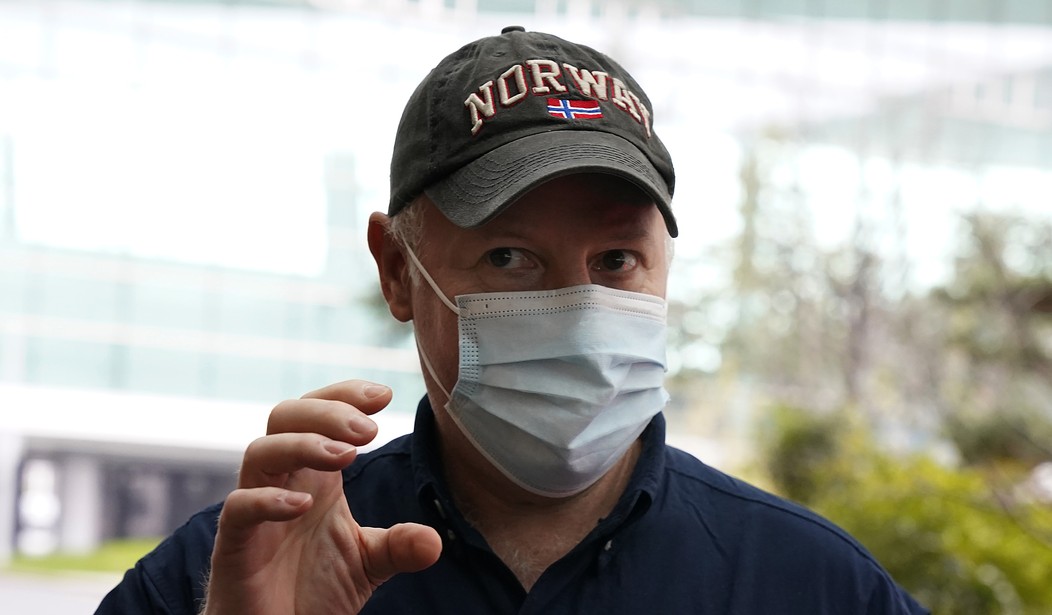The Lancet is the medical journal that published a letter last year dismissing the possibility of a lab leak in Wuhan as a possible point of origin for the COVID pandemic. The journal published another letter this year essentially doubling down on those claims. But in a sign of how things have changed, Lancet published a very different letter last Friday, this one calling for a transparent debate on the subject, one that does not rule out the lab leak hypothesis prior to discussing it.
After facing backlash for its coverage of origins of the Covid pandemic, the much acclaimed scientific journal –The Lancet has now published an ‘alternative view’ from 16 scientists.
The international team of health experts, in the open letter, make an appeal for “objective, open, and transparent scientific debate about the origin of SARS-CoV-2”.
Here’s a bit of the letter itself which opens by arguing the authors of the previous letters have the facts backwards. There is no conclusive proof for either theory, they argue, therefore neither possibility should be ignored. This is a bit dense but worth reading:
On July 5, 2021, a Correspondence was published in The Lancet called “Science, not speculation, is essential to determine how SARS-CoV-2 reached humans”. The letter recapitulates the arguments of an earlier letter (published in February, 2020) by the same authors, which claimed overwhelming support for the hypothesis that the novel coronavirus causing the COVID-19 pandemic originated in wildlife. The authors associated any alternative view with conspiracy theories by stating: “We stand together to strongly condemn conspiracy theories suggesting that COVID-19 does not have a natural origin”. The statement has imparted a silencing effect on the wider scientific debate, including among science journalists. The 2021 letter did not repeat the proposition that scientists open to alternative hypotheses were conspiracy theorists, but did state: “We believe the strongest clue from new, credible, and peer-reviewed evidence in the scientific literature is that the virus evolved in nature, while suggestions of a laboratory leak source of the pandemic remain without scientifically validated evidence that directly supports it in peer-reviewed scientific journals”. In fact, this argument could literally be reversed. As will be shown below, there is no direct support for the natural origin of SARS-CoV-2, and a laboratory-related accident is plausible.
There is so far no scientifically validated evidence that directly supports a natural origin. Among the references cited in the two letters by Calisher and colleagues, all but one simply show that SARS-CoV-2 is phylogenetically related to other beta coronaviruses. The fact that the causative agent of COVID-19 descends from a natural virus is widely accepted, but this does not explain how it came to infect humans… In the last part of the article, they briefly evoke selection during passage (ie, experiments aiming to test the capacity of a virus to infect cell cultures or model animals) and acknowledge the documented cases of laboratory escapes of SARS-CoV, but they dismiss this scenario, based on the argument that the strong similarity between receptor binding domains of SARS-CoV-2 and pangolins provides a more parsimonious explanation of the specific mutations. However, the pangolin hypothesis has since been abandoned, so the whole reasoning should be re-evaluated…
Overwhelming evidence for either a zoonotic or research-related origin is lacking: the jury is still out. On the basis of the current scientific literature, complemented by our own analyses of coronavirus genomes and proteins, we hold that there is currently no compelling evidence to choose between a natural origin (ie, a virus that has evolved and been transmitted to humans solely via contact with wild or farmed animals) and a research-related origin (which might have occurred at sampling sites, during transportation or within the laboratory, and might have involved natural, selected, or engineered viruses).
The letter concludes with a call for journals to focus on science rather than politics: ” As scientists, we need to evaluate all hypotheses on a rational basis, and to weigh their likelihood based on facts and evidence, devoid of speculation concerning possible political impacts.”
I have no idea if this letter will cause more scientists to openly discuss the possibility of a lab leak or just cause them to dig in to defend their existing views. I certainly don’t expect Peter Daszak, who organized the first Lancet letter last year and who dismissed the lab leak theory before the WHO sent him to Wuhan earlier this year, to change his tune. But the important thing is that the dissent is now also being published by Lancet. That means the presumption that one side of this argument is scientific and the other is not is finally collapsing. Ultimately what matters here is getting to the truth. That’s more likely to happen if we can have an open debate that isn’t moderated by people like Daszak who have a personal stake in the outcome.







Join the conversation as a VIP Member